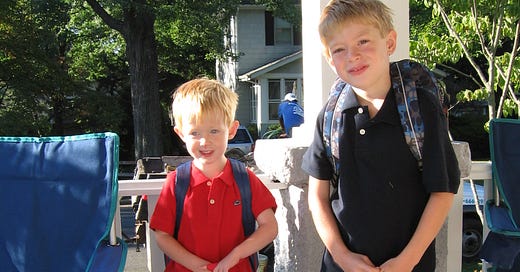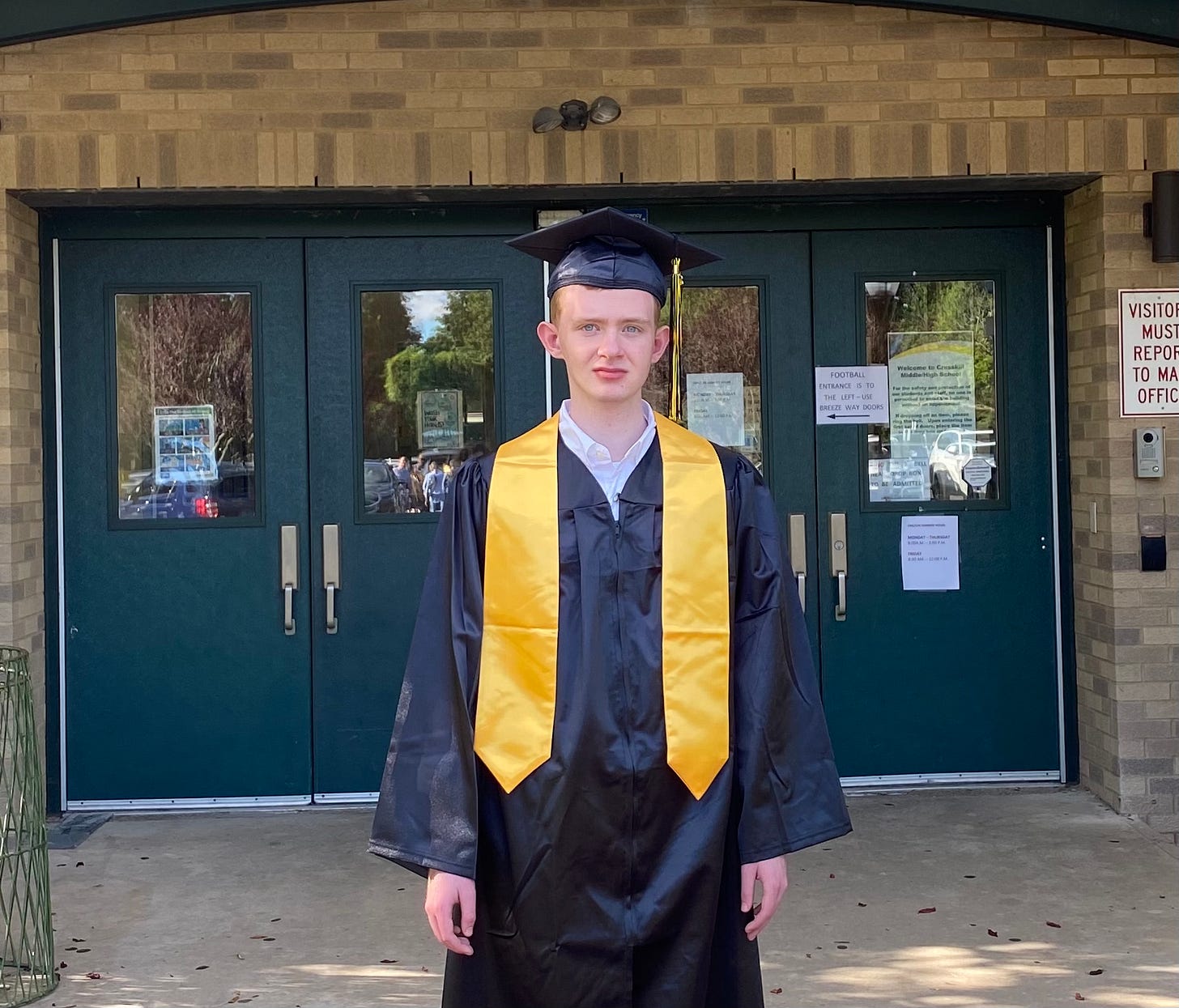According to the CDC, 61 million adults in the United States — that’s one in four people — live with a disability. If we include their family-caretakers in that group, then that’s a really huge number of people who have particular needs that should be addressed by the government. That’s such a huge number, that it is hard to understand why disability issues play such a minor role in US politics.
Given that 1 in 4 number, you would think that special education would play a larger role in schools than AP classes or varsity football, too. If we include all the kids don’t meet state requirements in math and reading due to poor schools, trauma, or family life, then the number of “kids who need extra help” is MUCH larger than “kids who don’t need help.” Despite the legions of “kids who need extra help,” more resources and attention go to AP classes than remedial reading.
In politics, we tend to think that numbers = power, but that’s not always the case. In order to have power, that large block of people needs to own that identity and organize. Disability issues have remained in the margins of political life and in schools, because people are disabled in too many different ways making it very hard to create a consistent message and common identity.
***
Since Ian was very little, I struggled to find the right schools, programs within schools, after-school activities, and camps for him. I’ve spent countless hours googling and networking to try to find the place to educate, challenge, amuse, and nurture him. I’ve hired consultants to help us. I’ve attended evening meetings and information sessions run by local disability organizations. I’m always looking for something where Ian fits in. That’s not to say there are no schools or camps or swim lessons for disabled kids in our area. There are. The problem is that those programs are not right for Ian.
There are camps for kids in wheelchairs and low cognitive abilities. There are schools for kids with nonverbal autism, ADHD, or behavioral issues. But Ian is none of those things. He needed schools and activities for kids who are hyperlexic, compulsive, inflexible, physically weak, super smart, very quiet, socially naive, sensitive to loud noises and bright lights, and blunt. He needed be around other kids who like to open things up and see how they work, and who like to follow the rules.
Even within the autism world, it’s very hard to make generalizations and create one program that meets everyone’s needs. Autistic folks are all so different.
One of my friends has a son with autism. We used to take our kids to special ed swim at the YMCA together. Her boy would jump right in the water and swim back and forth like Michael Phelps. Ian would ease into the water inch by inch until his body got used to the cold and then delicately paddle across the pool. Her son goes to a school that specializes in autism, because he does not have the attention span or interest in reading or math; he likes to “script” Pixar movies. Ian got A’s and B’s in Pre-Calc at a local high school. Our kids both have the same diagnosis, but have very different strengths and weaknesses.
When Ian was in elementary school, he was in a specialized program within a public school for kids with autism. The program drew in kids from all over New Jersey, so it was large enough to have separate programs for the academic kids and for kids who were not. One afternoon, I attended one of their support groups for parents.
The facilitator started the group by asking how everyone was doing. An Indian woman with her hair in a pony tail started talking about how she was having a hard time managing because her nonverbal son was smearing poop on the walls and stealing food from the kitchen cabinets. She talked for forty minutes straight and the rest of us patted her on the shoulder. Some gave her tips about social services. At some point the facilitator interrupted her and asked if anybody else wanted to talk. I kept my mouth shut. How could I complain that my son refused to leave a movie theater until the credits were over, because he was obsessed with moving words? Poop on the walls is a whole different need than compulsive word reading.
I’m rambling here, but my point is that disabled people are all different. They have different challenges, interests, talents, and energy levels. All those differences mean that it’s hard for a person with dyslexia (and parents of children with dyslexia) to find commonalities with a person with nonverbal autism. Autistic people aren’t even alike. How do you make demands for change, when everyone wants and needs something different? Some people might need a special parking place at workplace, while others need a job where they can stack shampoo on shelves with lots of breaks for sensory recovery.
To help disabled people, we have to normalize the word “disabled.” Everybody has to use the word and feel comfortable with it and not get sucked into some stupid-assed woke version of the word “disabled.” Then we have to provide ample, research-based school services for every child who needs extra help, regardless if they have an IEP or not. And after school, we need to recognize that lots of people need help with employment and with housing, so we need to create programs with many options for all sorts of different people. We need to need to advocate for the needs for ourselves or our kids, as well as advocating for everyone else at the same time.
Since I wrote that HuffPost article about my son, people have reached out to provide me with information about programs and career opportunities for kids like him. I have learned a ton. (Thanks again, everyone. I’m still responding to emails.)
My son is extremely privileged in the world of disabilities, because he has a very unique and highly valued talent — coding, pattern recognition. His disabilities do not interfere with work; in fact, his disabilities mean that he never gets bored and can work without distraction for 60 hours a week. He’s a rule follower. He will be the ideal employee, if you over look the fact that he picks his nose and does not like to interact with customers or co-workers. Companies are starting to recognize folks like my son, so Ian will have some very interesting opportunities waiting for him in a couple of years.
It’s going to be a tricky couple of years, as we continue to work on social skills, while increasing his computer coding knowledge. We have a Plan A — a little of this and a little of that, and Plan B ready to go, if Plan A sucks. We’ll manage, but there is no road map for this, so there’s going to be some trial and error.
But even if all the pieces line into place, and we get Ian one of those legendary autism-friendly computer jobs, we’ll always identity as a special needs family. Even if Ian no longer needs support from us (unlikely), this experience has totally shaped my life. I hope to watch this movement mature and organize. Because 1 in 4 is a big number.
LINKS
Lots on the plate of life right now. I’m mostly managing everything, but there are many plates up in the air at this moment.
In the midst of all this, I am trying very hard to remain on a diet. I have never really been on a diet before. I mean I tried once or twice last year, but those first feeble attempts at a diet mostly involved cutting out French fries, while still drinking wine, eating cheese, and enjoying pizza. I never had to diet before, so I didn’t really understand how much I needed to change my ways. Well, I’ve been at it for two weeks on Noom and running. I’m doing something very similar to Pioneer Woman. Let’s see if my (our) plan works. I stopped drinking wine, for God’s sake. I better lose twenty pounds in two weeks.
Things are really cooking up in the war of the Sussexes v. Everyone Else. I mean things are about to get super ugly. Just some links now. Juicy commentary later this week.
Our house is under construction. We’re getting new siding, doors, and windows. The old girl is sixty years old, so she needs a face lift. I’ll write about it. There are pictures of the before and Day One on Instagram.
Ian graduated from high school on Tuesday. Today, his grandparents from NC just drove here and will stay for the weekend. We’re having a big dinner to celebrate at a local Italian restaurant on Saturday.
Watching: Succession, In the Heights, Doom Patrol, Loki. On deck: Lupin, Working Women, Mare of Easttown
Drinking: Vodka and Soda. Very sad about it, too.
Shopping: Outside light fixtures for the house (contractor is coming next week) and outdoorsy clothes for Jonah at REI (on a flight to Alaska right now)
Working: Still responding to email from the Huff Post article; Getting a crash course on higher ed/computer classes for smart autistic kids; Transitioning to a summer of selling books and little writing
Cooking: How do you prepare a meal for 20 (family in from out of town) in the middle of a work/school week? A baked potato station. Cook two bags of potatoes in the oven for 45-60 minutes at 425 degrees. People are used to eating microwaved potatoes, so they’ll think you’ve made them something miraculous. Then add bowls of cheese and chives and sour cream. And, of course, cook other things, too. Picture here and here.
Pictures: Ian’s first day of special ed pre-school, his last day of high school, and Graduation Day (last Tuesday).





